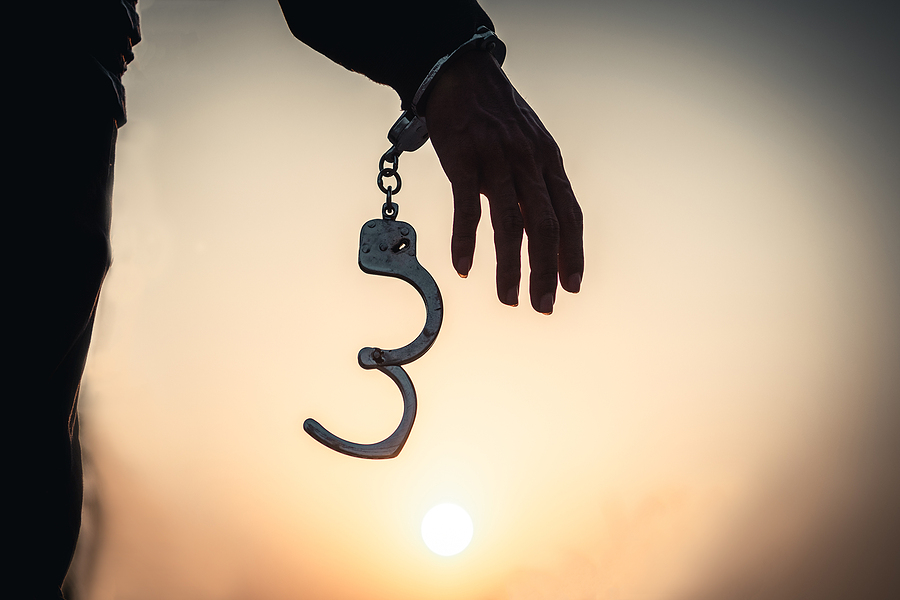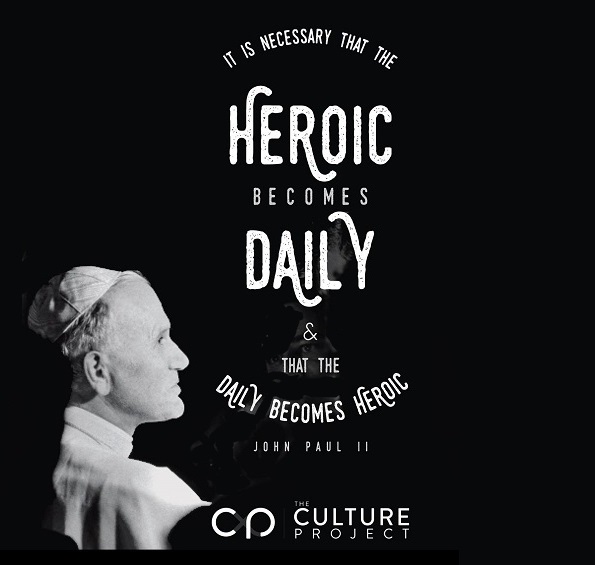
The business of sin
Until I listened to Fr. Alphonse’s homily at daily mass, I’d never thought of sin as a business. But the moment I heard his phrase, “the business of sin,” I knew the truth of the statement. As did the three others I commented to following the mass.
His remarks followed the reading from St. James for the Christian liturgy of Tuesday, February 15th:
Blessed is he who perseveres in temptation,
for when he has been proven he will receive the crown of life
that he promised to those who love him.
No one experiencing temptation should say,
“I am being tempted by God”;
for God is not subject to temptation to evil,
and he himself tempts no one.
Rather, each person is tempted when lured and enticed by his desire.
Then desire conceives and brings forth sin,
and when sin reaches maturity it gives birth to death.
Do not be deceived, my beloved brothers and sisters:
all good giving and every perfect gift is from above,
coming down from the Father of lights,
with whom there is no alteration or shadow caused by change.
He willed to give us birth by the word of truth
that we may be a kind of firstfruits of his creatures.
Since I was lector,
I read St. James’s words…proclaimed them, an act which is very different from merely reading. Since the saint”s words seemed to penetrate deeply into psyche and marrow, I recalled the days when I had no belief, no faith. In anything. The days when, quite truly, I spoke a different language.
In a book I wrote about becoming Catholic, I wrote this.
“The feeling I had about Catholicism was not something I could easily explain in words, to others or to myself then or now. And it made no sense because I knew nothing about this religion, it was never among the list of faiths I had tried on for size. I had never read any books or articles about the Catholic religion nor had I spoken with John in any detail about being Catholic. About why he was Catholic. Or even what he believed. I had accepted at face value his offer of the Abbey as the sacred place I was seeking. And once I got there, found not only a holy place but so much more. Crazily, I felt as if I had come home, after a long and exhausting journey. But- there’s often a but when we achieve something momentous- I found myself second guessing myself…
Thinking back to those few months of study at the Abbey, I recall the pleasure with which I learned my introduction to this faith and the enjoyment of my discussions with Brother Andrew. My ignorance of all things religious was vast. Hence, the request to be treated as if I were a blank slate was hardly an overstatement. By necessity, what follows is an abbreviated list of the vocabulary, books, and principles that after almost twenty years still influence me.
Take sin for example. I had spent years living as a woman who did not believe such a thing existed. The ten commandments, like the Bible itself, was an anachronism. But once the defenses and rationalizations are put aside, the truth takes up residence and the relief of admitting the enormity of all the error is freeing. Paradox. Strangely, the longer I practice this faith, the more my ideas of sin deepen or maybe broaden. Initially, it’s all about the rules, the ones I flouted, as I said in an earlier chapter. With time, prayer and study our conception of sin changes, sometimes radically.”
But until this week, I’d not considered
the business of sin. At least not in those words. But it takes no time at all to grasp the vast amounts of money brought in by pornography dressed up as entertainment, the ennoblement of depravity, and the renaming of mortal sin as virtuous. Even health has become a battle for money.
Of course, once we strip away the rhetoric, it’s always about money, no matter how many euphemisms we use to obscure the reality.
And yet our trust-worthy friend St Paul has words of consolation.
Moreover the law entered, that the offense might abound. But where sin abounded, grace did much more abound,Letter to the Romans
We are not left defenseless against sin!
We are not mere victims of our own and others’ evil.
No, we choose to give in: “lured and enticed by his desire.
Then desire conceives and brings forth sin.”
During those early days of learning this brand new vocabulary of faith, I learned new concepts. Like chastity, a word I formerly considered as 19th century. Belonging to Jane Austen or Thomas Hardy. But once introduced to St Thomas Aquinas, I found that his dense but gripping writing on the virtues fascinated, even excited me. And, after reading McIntyre’s After Virtue, I began to glimpse the effects of the “enlightenment” on humanity.
But my study wasn’t just philosphical but personal, even intimate. Here’s what I mean.
“…And then there is the soul, my soul, yours and each human person. That I had one had not entered my mind in decades, if ever. I used the word, of course, in referring to people with whom I felt a deep connection as ‘old souls’ …But the soul in this context was entirely different from those expressions. And the consequences of an entity like this staggered me. There was a time, and there were cultures, I suppose, when discussions about matters of faith were second nature for average people and used in daily conversation. When these issues were believed to be a grave matter to be taught, explored and accepted or rejected. From the view of the twenty-first century, they seem medieval, born of myth and superstition.”
Chapter four of the Rule of St. Benedict lists the Tools of the Spritual Life. The saint begins by exhorting,
First of all, love the Lord God with your whole heart, your whole soul and all your strength, and love your neighbor as yourself (Matt 22:37-39; Mark 12:30-31; Luke 10:27). Then the following: You are not to kill, not to commit adultery; you are not to steal not covet (Rom 13:9); you are not to bear false witness (Matt 19:18; Mark 10:19; Luke 18:20). You must honor everyone (1 Peter 2:17), and never do to another what you do not want done to yourself (Tob 4:16; Matt 7:12; Luke 6:31).
Renounce yourself in order to follow Christ (Matt 16:24; Luke 9:23); discipline your body (1 Cor 9:27); do not pamper yourself, but love fasting. You must relieve the lot of the poor, clothe the naked, visit the sick (Matt 25:36), and bury the dead. Go to help the troubled and console the sorrowing…
It’s a very long list and one worth reading over and over.
But it’s his last sentence that astonishes each time I read it.
These, then, are the tools of the spiritual craft.
When we have used them without ceasing day and night and have returned them [italics mine] on judgment day, our wages will be the reward the Lord has promised: What the eye has not seen nor the ear heard, God has prepared for those who love him (1 Cor 2:9).
I think about this statement, but not often enough.
I’ll end this piece on a not just hopeful, but to me, miraculous note: Virtues will be taught in public schools in New York City! A crystal-clear affirmation of what St. Paul tells us: “Where sin abounded, grace abounds even more.”
“Ian Rowe believes in teaching students four cardinal virtues: courage, justice, wisdom, and temperance. These qualities make up the core curriculum at his forthcoming International Baccalaureate public charter high schools in the Bronx, set to open in 2022.
A product of New York City’s public school system himself, Rowe is determined to give parents an option that promotes classic ideas about equality that many still believe can work.”

In the book of Proverbs Solomon tells us: If you cry out for wisdom and raise your
voice for understanding, if you look for it as for silver and search for it as
for treasure, then you will understand the fear of the Lord.
We must begin by crying out for wisdom. We must hand over to our intellect the
duty of making every decision. We must look for wisdom and search for it. Then
we must understand the fear of the Lord.
For us the fear of God consists wholly in love, and perfect love of God brings our
fear of him to its perfection. Our love for God is entrusted with its own
responsibility: to observe his counsels, to obey his laws, to trust his
promises.
We must ask for these many ways, we must travel along these many ways, to find the
one that is good. That is, we shall find the one way of eternal life through
the guidance of many teachers. These ways are found in the law, in the
prophets, in the gospels, in the writings of the apostles, in the different
good works by which we fulfil the commandments. Blessed are those who walk
these ways in the fear of the Lord.
Saint Hilary of Poitiers
This entry was posted in Spiritual Practices, Spiritual Reflections on February 17, 2022 by monks4christ




Another gem by Lin Wilder. Thank you Lin for unabashedly opening your heart and “soul” to your readers
You have provided much food for thought this Sunday.
Always a joy to read your works.
A blessed Sunday to you my friend! Thank you for your remarks-much appreciated!